Quick look at Omegon veTEC 432 M camera
Lets take a look on Omegon veTEC 432 M camera for deep space astrophotography - big mono pixel and a medium sized sensor.
IMX432 Sensor
IMX432 is one of newer Sony CMOS sensors but it's not featured in many astro cameras. It has only
1600x1100 pixels so it may not be that attractive at first look but the pixels are large - 9μm which may make it quite handy for imaging galaxies or planetary nebulae from long focal length telescopes.
Point Grey (Teledyne FLIR) states for their cameras with this sensor a QE of 72% for 525nm. Well depth at 19643e (HCG) / 98965e (LCG) and theirs Absolute Sensitivity Threshold
at 7.22 (HCG) / 33.49 (LCG) - the lower the better and it's a combined measure of noise and sensitivity. The 7,22 result is better than IMX174 but worse than most Sony 200 series IMX sensors. IMX174 and IMX432 have a global shutter while those other ones have a rolling one. This doesn't really affect astrophotography but can be a factor in some machine vision imaging (and both global shutter sensors are somewhat more expensive than similar rolling shutter sensors).
The diagonal is 17.6mm, which is bit less than common Panasonic MN34230 (21,6 mm). This however could lead to much easier usage of 1,25" filters (with less vignetting).
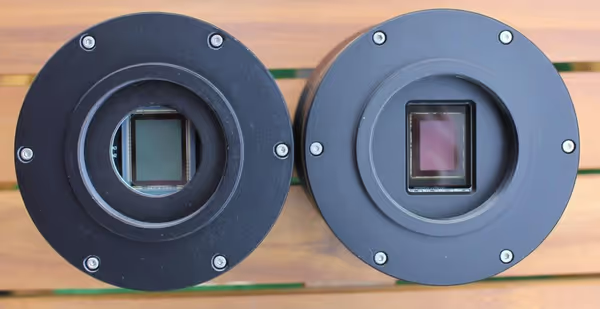
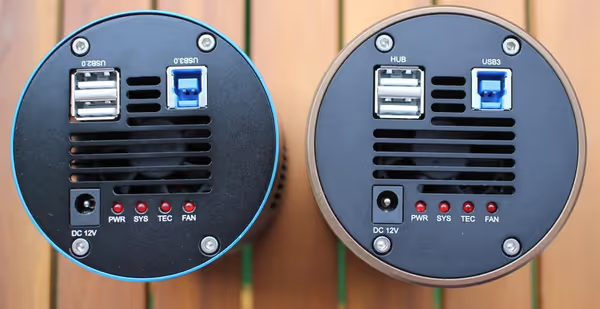
Omegon veTEC 432 M
The Omegon veTEC 432 M is one of first astronomical cameras using this sensor... although in reality it's a white label of a Touptek camera.
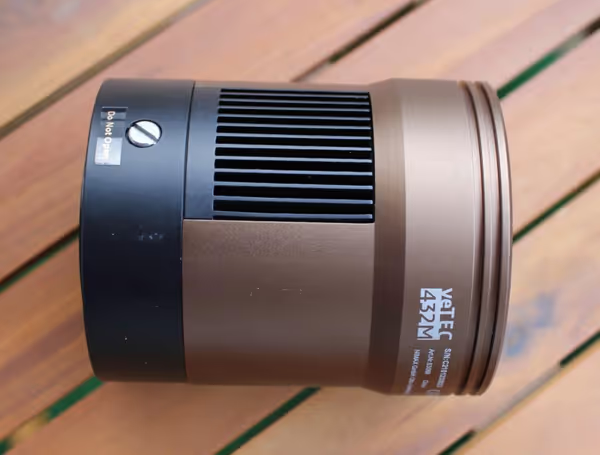
Many shops brand Touptek cameras. On Aliexpress we will find Risingcam, in NA we will find Mallincam and in Europe we will find Omegon (by Astroshop) and few other like Altair Astro.
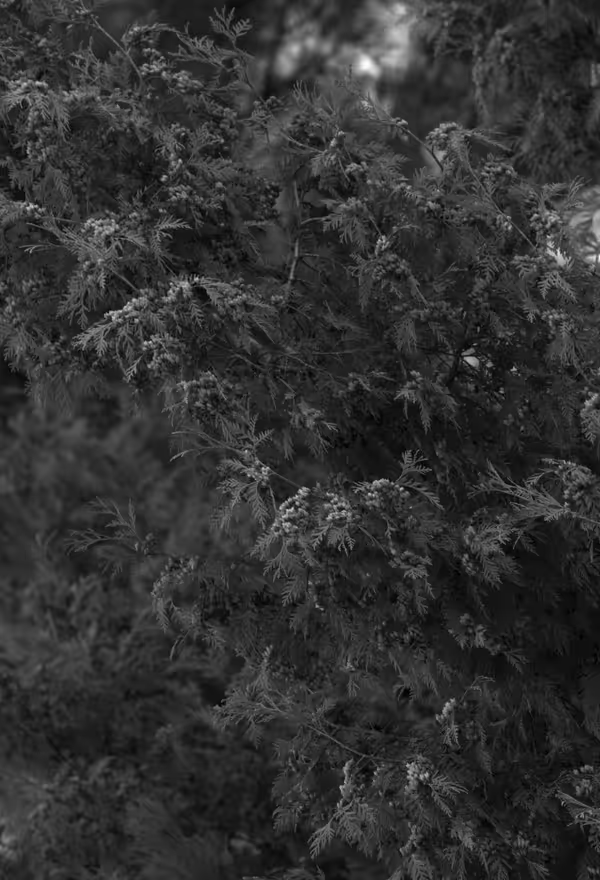
Omegon veTEC 432 M has the usual TEC active cooling and a USB hub on the back. On the front side we get a T2 thread. The 12V power supply is bit heavy so place it so that so it won't pull down on the system.
We also get the standard ASCOM, WDM drivers as well as SDK, but all branded as Omegon:
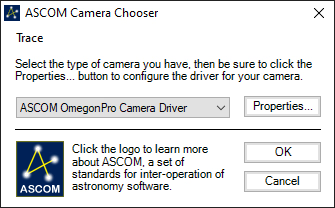
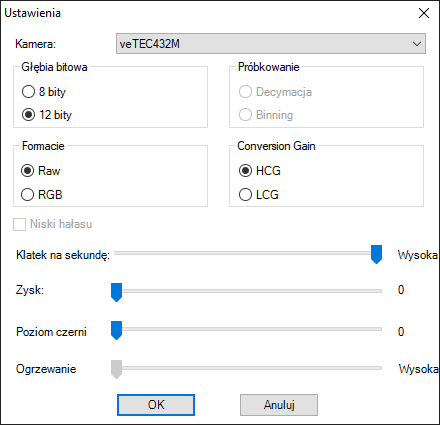
HCG (high conversion gain
) is for lowest read noise (but max gain) while LCG (low conversion gain
) is for max dynamic range (low gain). You can see that on dark frames:
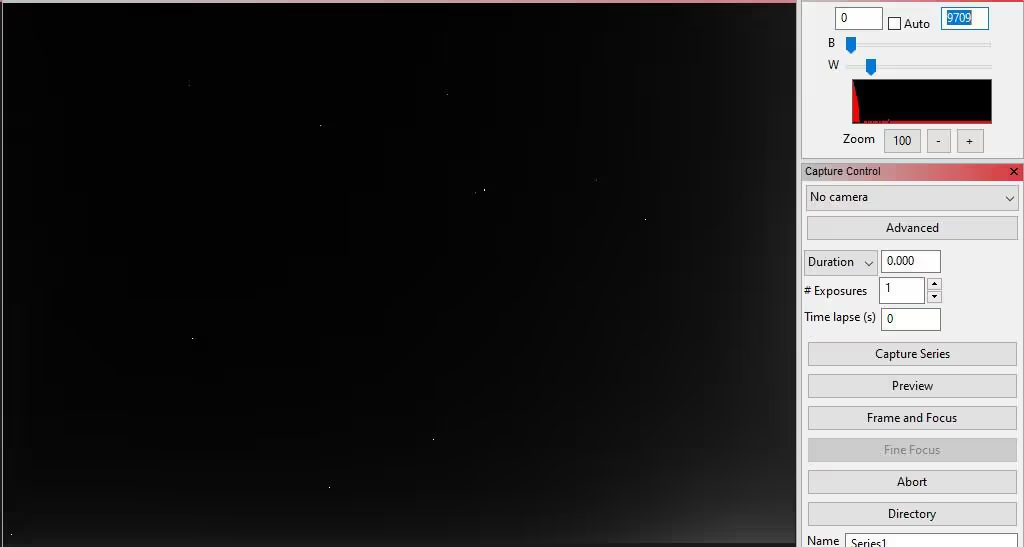
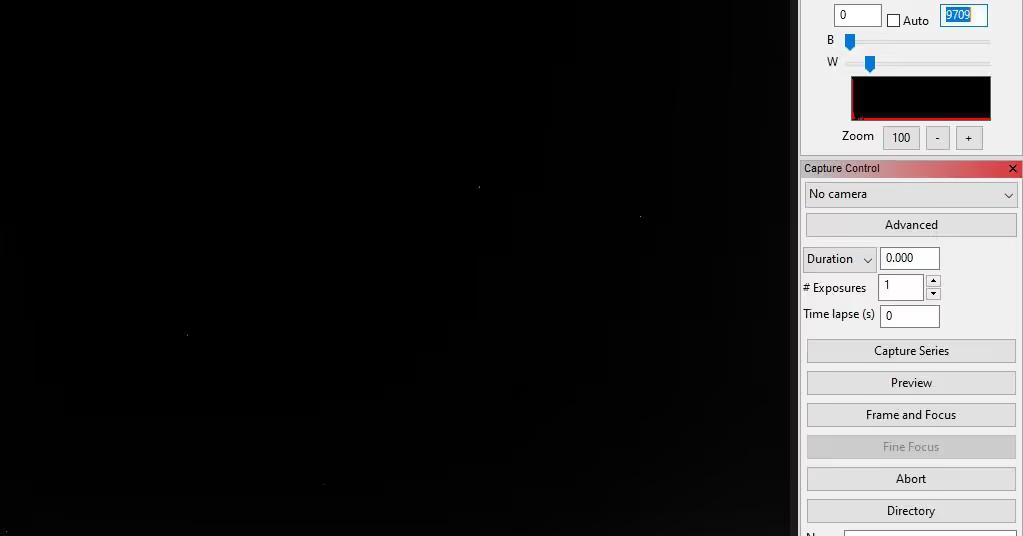
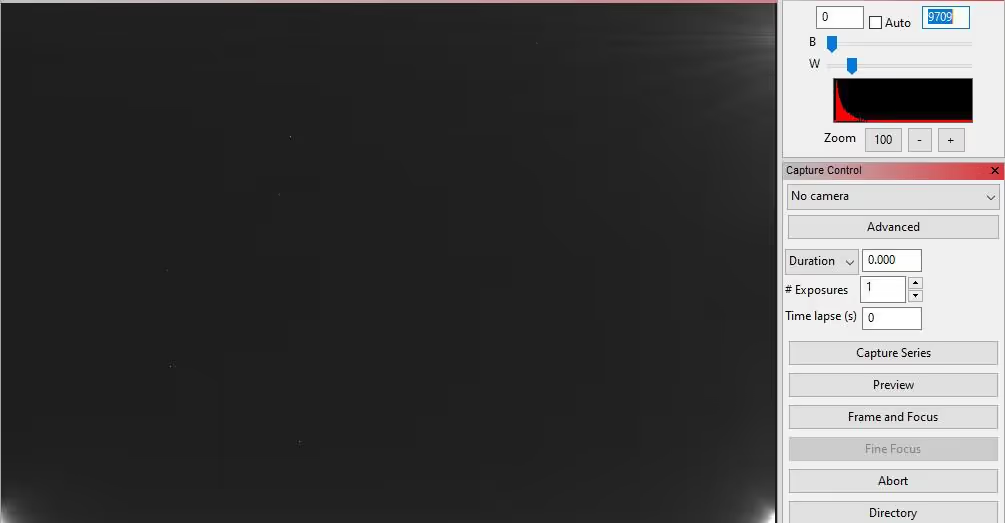
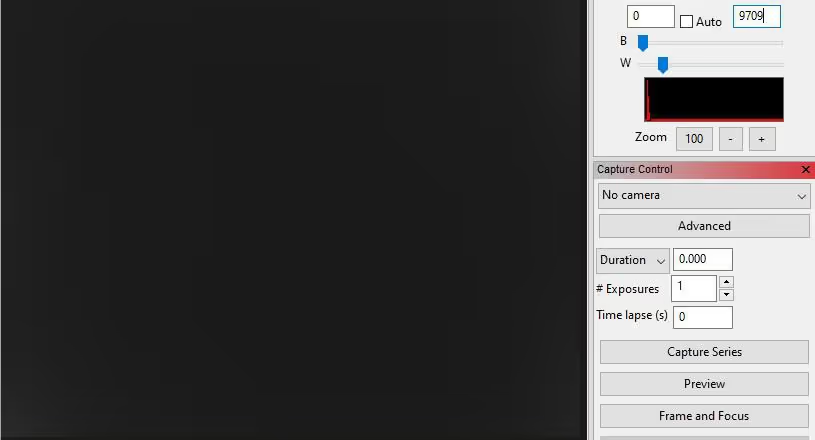
Above darks were resized and had their levels cut to showcase the noise better.
Omegon camera does not show any typical amp glow-like rays, but if you clip the histogram really hard you can see it on the edge of the frame:
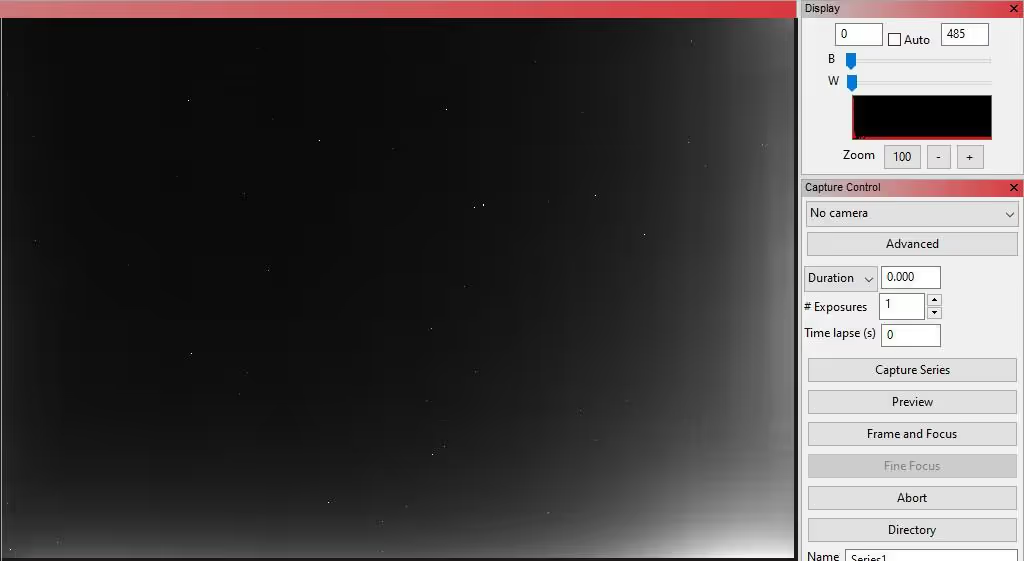
Bias frame looks really clean, and you have to cut the histogram really hard to see anything. This can be camera electronics in action (black level) removing any fixed pattern noise but in the end some astro photos have to be made to see how it handles such type of imaging:
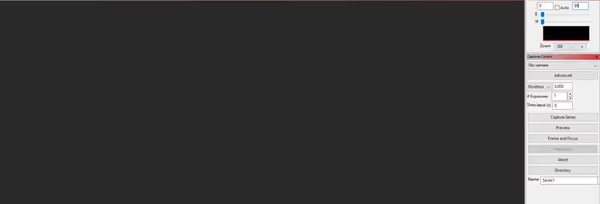
1,25" filters
Panasonic based cameras can use 1,25" filters but there is some level of vignetting and the scope can't be to fast. IMX432 is smaller so 1,25" filters could work more efficiently with it than with the Panasonic. Testing via flat frames there seems to be slight amount of vignetting:
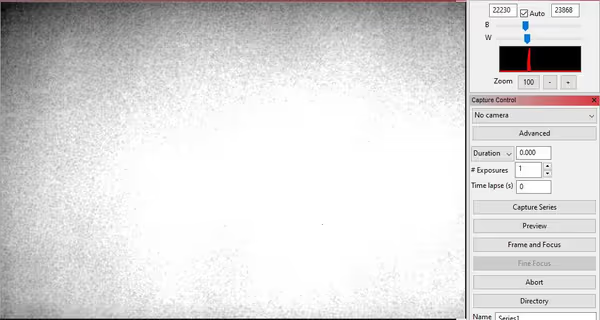
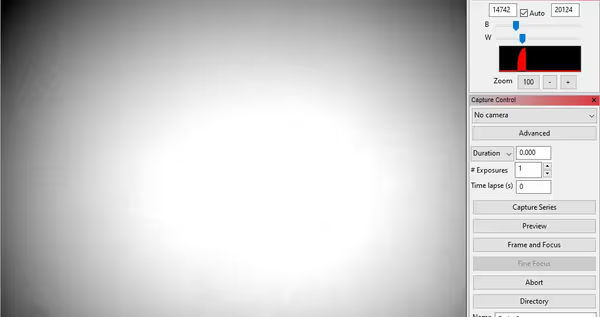
While testing with RedCat 51 (f/4.9) I used a 1,25" filter drawer with a H-alpha filter:
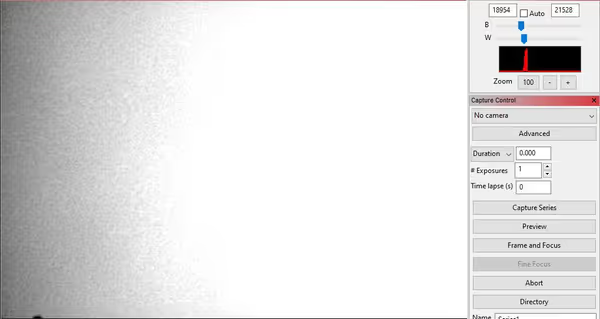
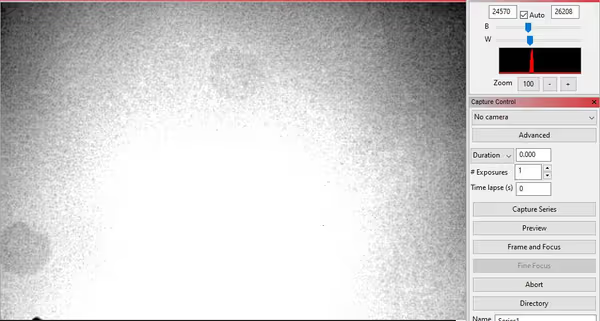
ZWO also has a T2 adapter that allows screwing a 1,25" filter just above the camera cover glass - which should perform better, but without quick change feature of a filter drawer or a filter wheel.
Summary
Omegon veTEC 432 M looks like a nice specialized camera for astrophotography. I will have to do some actual photographs to see how it actually performs but first look is promising.
Small pixel sensors like IMX178 with a 3096x2080 frame can be tempting due to amount of pixels but also very small pixels will mostly work well with very short focal length refractors and lenses. Large pixels will reduce the resolution given by a long focal length larger telescope and provide more photons per pixel.
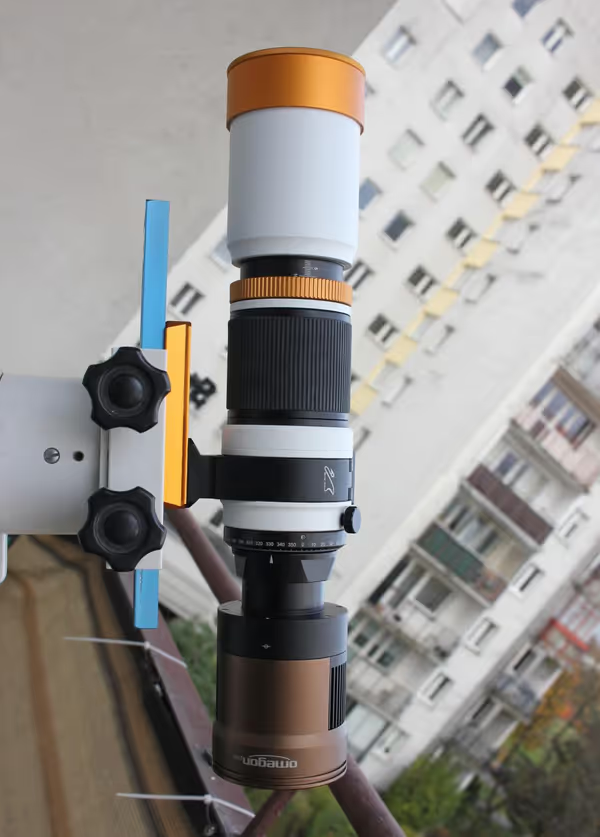
Latest photos
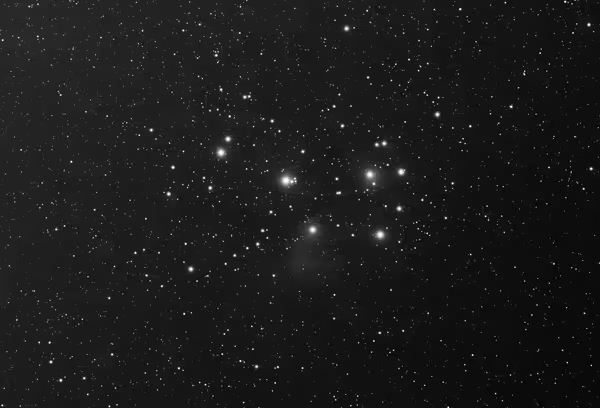
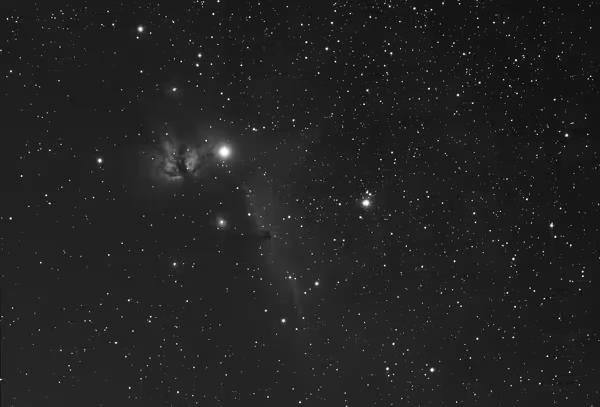
Comment article